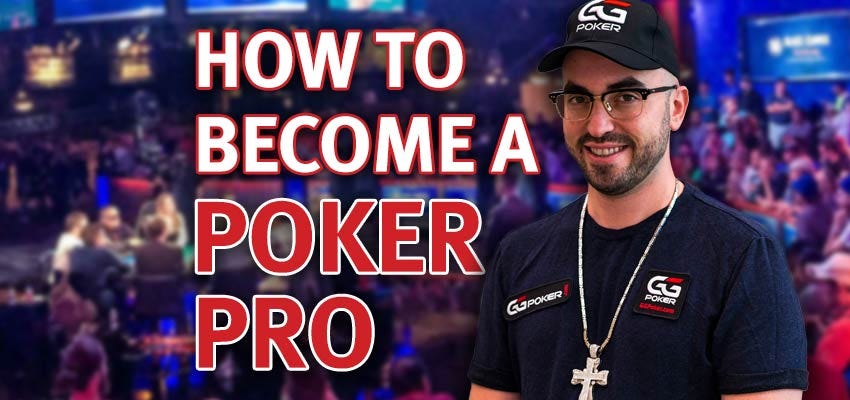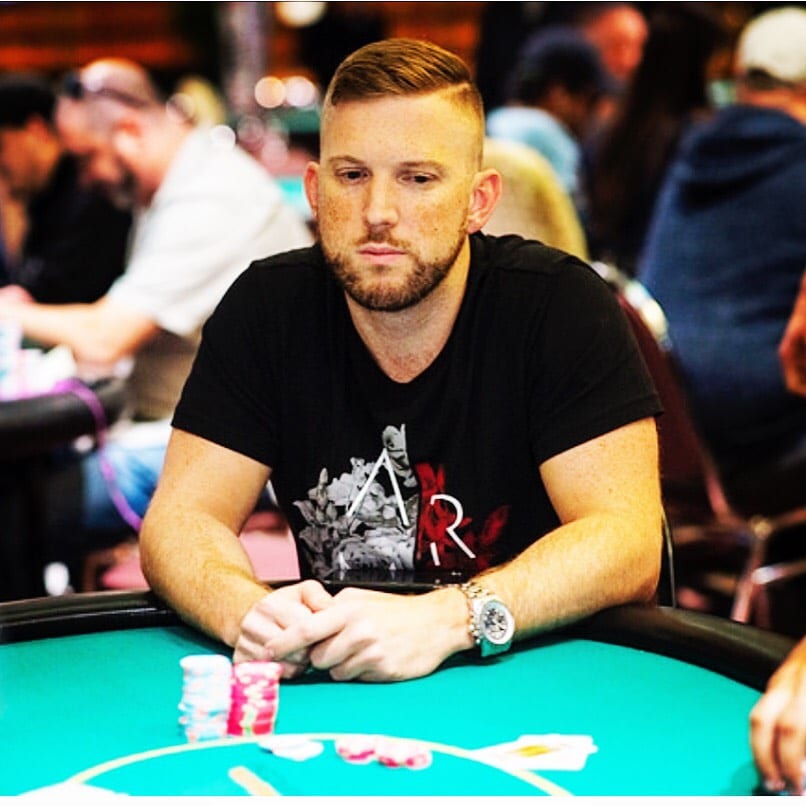Becoming A Poker Pro
If you love poker, chances are you've considered dumping the drudgery of the day job and going pro.
Getting sponsorship, getting up when you want, earning megabucks and travelling the world; the pluses of turning pro are attractive indeed.

If you’re wondering how to become a professional poker player, though, you need to get out of this mind-frame and think about the long run. Winning online MTT players can get anywhere from 10% to 60%+ ROI. It means that for every $1 they put in towards buy-ins, they will earn $0.10 – $0.60+ on top of that. As the old saying goes, being a poker pro is a hard way to make an easy living. If you want all that freedom and the ability to play a card game for a living, then you need to earn it and respect it. Here are some of the qualities that you need to become a successful professional poker player: Have good temperament, discipline and self-control. You need to be fairly intelligent. You don't need to be a genius, but if you are always bottom of your Math's class then reconsider your career. Becoming A Poker Pro The idea of being a poker pro is alluring. You are your own boss. You play when you want.
But the downsides can be serious. Many pros go bust, some turn to gambling addiction, and others who'd happily crushed the games suddenly find themselves beaten by the new generation of player.
So, could you do it? And how would you even go about it. Let's take a look at how your poker journey can get up and running.

Poker is one of the games that people love to play when they are in a casino or playing online. While poker an easy game to learn, masting it can take years. Spending time in excelling the game is important, but you must also learn the associated skills that poker pros develop in order to stay profitable for the long term. As a beginner, here is what you need to know to become professionally good in poker.
Know the game
The key is to realize what the game is all about and what you want to play it for. Is it only for learning, or is it really going to be your source to earn money. Understand what you want from the game and learn it accordingly. Playing for fun in a casino is different from playing in a tournament that requires more study and planning. Knowing the basic rules is not enough what you are sitting among pros.
Practice every day
There are infinite outcomes in poker. You cannot learn a single game without having to pay for it. Similarly, you need to understand that every player will have their own strategies ready to counter your fixed strategies. That is why you need to practice every day and build your strategies to use a fresh one in every game.


Steps To Becoming A Poker Pro
Only play the winning hands
Never make a move without having a reason to do so. It is important to choose your hands carefully when you are going pro. Playing aggressively without considering your wins can put you in losses. Play with only the best hands where you play safe or aggressive. At the same time, pay attention to your opponent, too, as they can have a better hand than you.
Learn when and how to bluff
Bluffing is a necessary skill to learn in poker. It adds thrill and fun to the game. However, bluffing also adds a ton of risk to the player. It can go either way, so you need to learn when you are in a position to bluff. Learn to steal the blinds and play aggressively on the pre-flops.

Always stay alert
Always know when it is your time to make a move. Observe your surroundings and make sure your cards are only visible to you. Always look at yourself and where you stand in the game to make future decisions. You also need to manage your physical and mental health as you will encounter several instances that can break you down.
How To Be A Poker Pro
Learn to accept losses
Learn To Be A Poker Pro
Poker is a game of win and lose, and you cannot expect to win always. Most poker players who give up early face massive tilts that make them frustrated over bad luck. However, it is not your luck but the concept of the game that will always hold the risk of losing. Learn to face your losses and move on. If you cannot control your emotions during the game, then poker may not be the game for you.